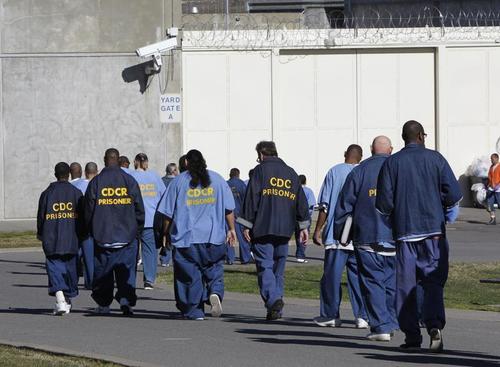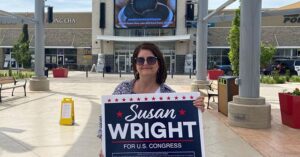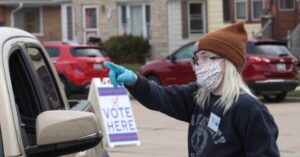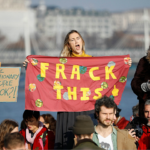California Gov. Gavin Newsom is giving 76,000 inmates – 63,000 of which are violent and repeat felons – the chance to leave prison early, allowing inmates with good behavior to shorten their sentences by 1/3 instead of the 1/5 instituted in 2017, according to the Associated Press.
The benefits will extend to nearly 20,000 inmates serving life sentences with the possibility of parole, while over 10,000 prisoners convicted of a second serious (nonviolent) offense under the state’s “three strikes” law will be eligible for release after serving just half their sentences, vs. the current time-served credit of 1/3 of their sentence.
The rule, which takes affect Saturday, may take months or years before any inmates receive their early release. According to corrections officials, the goal is to reward inmates who improve themselves in prison, while critics argue this will endanger the public.
Meanwhile, all minimum-security inmates in work camps, including those fighting the state’s annual wildfires, will be eligible for the same month of earlier release for every month they spend in the camp, regardless of their crime.
“The goal is to increase incentives for the incarcerated population to practice good behavior and follow the rules while serving their time, and participate in rehabilitative and educational programs, which will lead to safer prisons,” said spokeswoman Dana Simas with the state’s Office of Administrative Law. “Additionally, these changes would help to reduce the prison population by allowing incarcerated persons to earn their way home sooner.”
Simas said the department was granted the authority to make the changes without public comment by making them “emergency regulations.” The department must now submit permanent regulations next year, after which there will be a public hearing and an opportunity for public comment.
That said, according to Kent Scheidegger – legal director of the Criminal Justice Legal Foundation which represents the victims of crime – ‘good behavior’ credits are a misnomer.
“You don’t have to be good to get good time credits. People who lose good time credits for misconduct get them back, they don’t stay gone,” he said. “They could be a useful device for managing the population if they had more teeth in them. But they don’t. They’re in reality just a giveaway.”
Also criticizing the Newsom administration for unilaterally deciding to make the changes was GOP state Sen. Jim Nielsen, who said: “He’s doing it on his own authority, instead of the will of the people through their elected representatives or directly through their own votes.”
“This is what I call Newsom’s time off for bad behavior. He’s putting us all at greater risk and there seems to be no end to the degree to which he wants to do that.”
California has been under court orders to reduce a prison population that peaked at 160,000 in 2006 and saw inmates being housed in gymnasiums and activity rooms. In 2011, the U.S. Supreme Court backed federal judges’ requirement that the state reduce overcrowding.
The population has been declining since the high court’s decision, starting when the state began keeping lower-level felons in county jails instead of state prisons. In 2014, voters reduced penalties for property and drug crimes. Two years later, voters approved allowing earlier parole for most inmates.
Before the pandemic hit, the population had dropped to 117,00 inmates. In the last year, 21,000 more have left state prisons — with about half being held temporarily in county jails. -AP
Democratic lawmakers and advocacy groups have been calling for more releases or shortened sentences, while the state announced in mid-April that they will close a second prison as a result of a shrinking prison population.
We can’t help wonder which communities early prisoner release will impact most?






